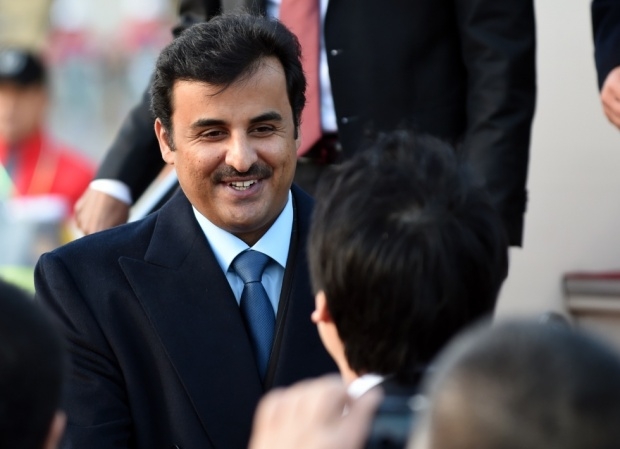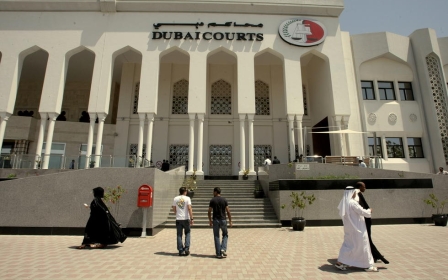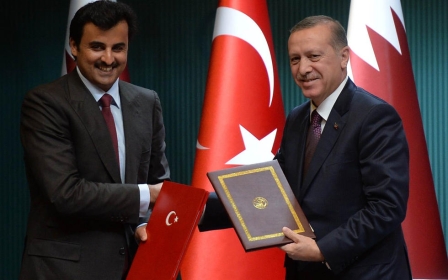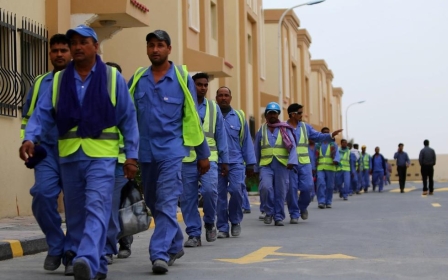Qatar failing to deliver on labour reform: Amnesty

DUBAI, United Arab Emirates – Amnesty International charged on Thursday that Qatar is failing to deliver on promised labour reforms for migrant workers ahead of the 2022 football World Cup, urging FIFA to intervene.
"Without prompt action, the pledges Qatar made last year are at serious risk of being dismissed as a mere public relations stunt to ensure the Gulf state can cling on" to the event, it said.
In the latest in a string of reports on migrant worker "abuse", Amnesty said Doha has failed to deliver reforms in key areas such as pay, the "kafala" system which blocks workers from leaving the country, and curbs on changing employers.
"Qatar is failing migrant workers," said Mustafa Qadri, Gulf migrants researcher at Amnesty.
"Last year the government made promises to improve migrant labour rights in Qatar, but in practice, there have been no significant advances.
"The lack of a clear roadmap of targets and benchmarks for reform leaves serious doubts about Qatar's commitment to tackling migrant labour abuse," he said.
Amnesty also said that 441 migrant workers from India and Nepal, the two countries sending the largest number of migrants working on World Cup projects, had died in Qatar in 2014.
The figures had been compiled from their governments, said Amnesty, but it did not detail how the workers died.
Amnesty also called on football's governing body, FIFA, to "prioritise" the plight of migrant workers.
It said FIFA, which meets next week to elect a new president, "must publicly and privately call on the Qatari authorities to implement effective reforms to protect migrant worker rights".
Publication of the Amnesty report, "Promising little, delivering less: Qatar and migrant labour abuse ahead of the 2022 Football World Cup", caps a turbulent week for Doha.
On Monday, it emerged that a BBC journalist invited to Qatar to examine the living conditions of workers building infrastructure for the World Cup had been arrested and held without charge.
And on the same day, campaign group New FIFA Now announced it had sent letters to eight FIFA sponsors including Adidas, Gazprom and Coca-Cola, urging them to speak out about working conditions in Qatar.
'Limited progress'
Amnesty's criticism come after Qatar's government, in the face of searing international condemnation, first pledged in May 2014 to reform some of its more contentious labour laws.
Amnesty lists nine "fundamental" areas for reform and said Doha has managed only "limited progress" in five, and none at all in four.
It criticises Qatar for not meeting a target of having 300 labour inspectors in place by the end of last year and for the slow introduction of an electronic wage protection system.
"With Qatar's construction boom continuing and the migrant worker population set to expand to 2.5 million, the need for urgent reform is more pressing than ever," said Qadri.
As well as promising reform in 2014, Qatar has made several pronouncements this year regarding labour law changes.
However, earlier this month officials admitted that reform was taking longer than anticipated but said Doha was committed to change.
Abdullah bin Saleh al-Khulaifi, the minister of labour and social affairs, said he was "90 percent" certain the kafala system would be replaced by the end of 2015.
He added that the wage protection system would be up and running by mid-August as well as improvements to workers' accommodation.
Middle East Eye propose une couverture et une analyse indépendantes et incomparables du Moyen-Orient, de l’Afrique du Nord et d’autres régions du monde. Pour en savoir plus sur la reprise de ce contenu et les frais qui s’appliquent, veuillez remplir ce formulaire [en anglais]. Pour en savoir plus sur MEE, cliquez ici [en anglais].




